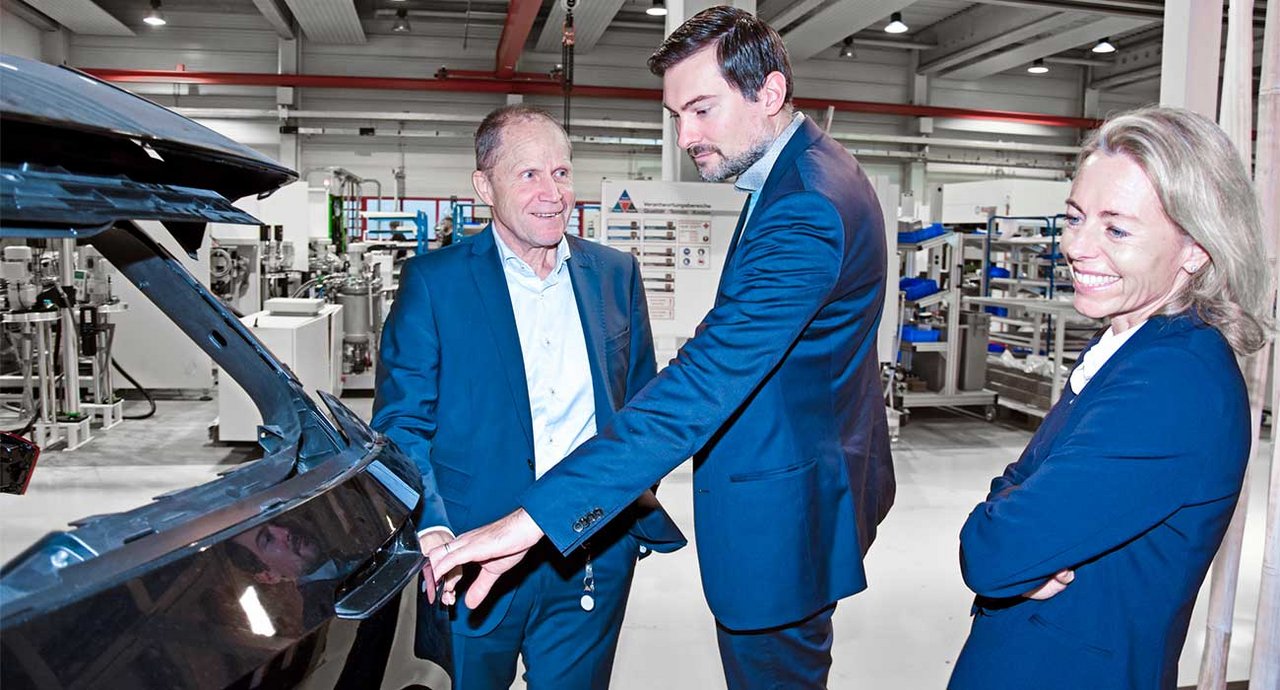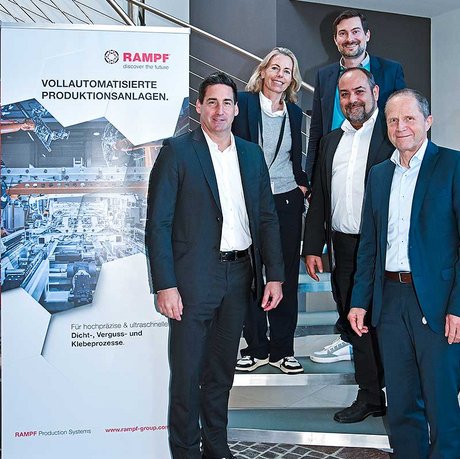
The Backbone of the German Economy Must Make Itself Heard
Energy costs, the transition to renewable energies, and the shortage of skilled workers – the numerous challenges facing German medium-sized companies guaranteed for a lively exchange when FDP politicians Claudia Raffelhüschen, member of the Bundestag, and Daniel Karrais, member of the State Parliament Baden-Württemberg, visited RAMPF Production Systems.
Our highly-skilled employees and first-class products make me optimistic about the future. However, the challenges that we have to overcome as a medium-sized family business are enormous. In order to continue to be successful, we are also dependent on political support.
A sharp increase in raw-material, energy, and transportation costs as a result of the corona pandemic and the Russian war of aggression in Ukraine; the transformation from fossil fuels to renewable energies; and the shortage of skilled workers, which is particularly rampant in rural areas – these are the topics that Matthias Rampf, CEO of the RAMPF Group, described as existential for the German industry in the conversation with Claudia Raffelhüschen and Daniel Karrais in Zimmern ob Rottweil.
Energy transition – keeping an eye on the big picture
When it comes to the transition to renewable energies, one has to keep an eye on the big picture, also with regard to freeing Germany from its dependence on Russian gas, emphasized Daniel Karrais:
Energy self-sufficiency is a utopia. Especially now, in the transition phase and due to the war in Ukraine, we have to establish a balanced energy mix. And yes – that includes the use of nuclear power. I don't think the discussion about extending the service life of nuclear power plants is over by any means. Increased research efforts in the field of hydrogen as an energy source or fracking must also be brought to the table.
Claudia Raffelhüschen added:
If you want to lower prices, you have to increase the supply. I think that all democratically-minded parties in the Bundestag are committed to climate protection, and that's a good thing. But the transformation process has to reconcile ecology and economy. Germany not utilizing its own nuclear power reserves and instead buying it from abroad at high costs is neither sustainable nor does it make economic sense.
Shortage of skilled workers already a reality
Hartmut Storz, CEO of RAMPF Production Systems, also looks to the future with cautious optimism. The company’s automated production systems for sealing, casting, and bonding reactive plastic systems are in high demand worldwide. Despite the numerous problematic developments, increasing sales are expected in both the current and the coming financial year. “We are benefiting above all from growth in the areas of electric mobility and household appliances. However, our biggest bottleneck is the shortage of skilled workers.”
As a company based in a rural area, it is difficult to recruit professionals from outside, emphasized Stefan Huber, who joined Hartmut Storz in the two-man RAMPF Production Systems CEO team in the summer of this year. “That's why we have a strong presence here in the region, be it in schools and universities, at training fairs, or as a sponsoring partner in the social field and for sports. In addition, we offer both our trainees and employees attractive working conditions and many additional benefits. The retention rate for trainees is very high and staff turnover is very low – two critical prerequisites for our ability to continue to grow.”
SMEs must make their voices heard
Politicians and managers alike agreed that small and medium-sized companies (SMEs) are the backbone of the German economy, both in terms of their economic contribution and as employers. While Matthias Rampf pointed out that SMEs were receiving too little media coverage and that politicians should support them in making their voices heard, Claudia Raffelhüschen emphasized that it is also the “task of entrepreneurs to illustrate how they are contributing to the prosperity of the country and why it is important to promote companies and reduce the burdens they face with regard to taxes and bureaucracy.”
During a tour of the factory buildings, Claudia Raffelhüschen and Daniel Karrais gained an encompassing insight into the day-to-day business of RAMPF Production Systems. For the 32-year-old Karrais it was the second visit to Zimmern ob Rottweil. As a trained mechanical engineer, he showed great interest in the company’s mixing and dispensing systems.

